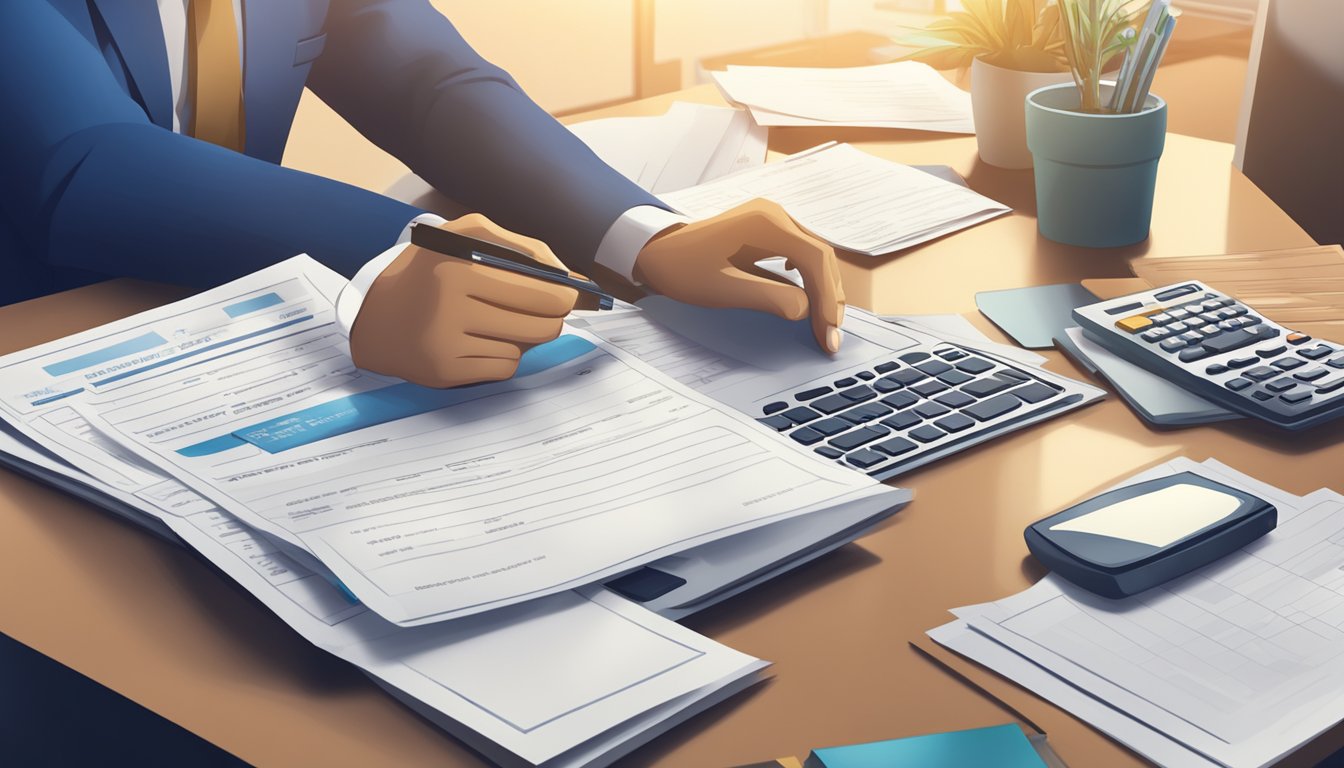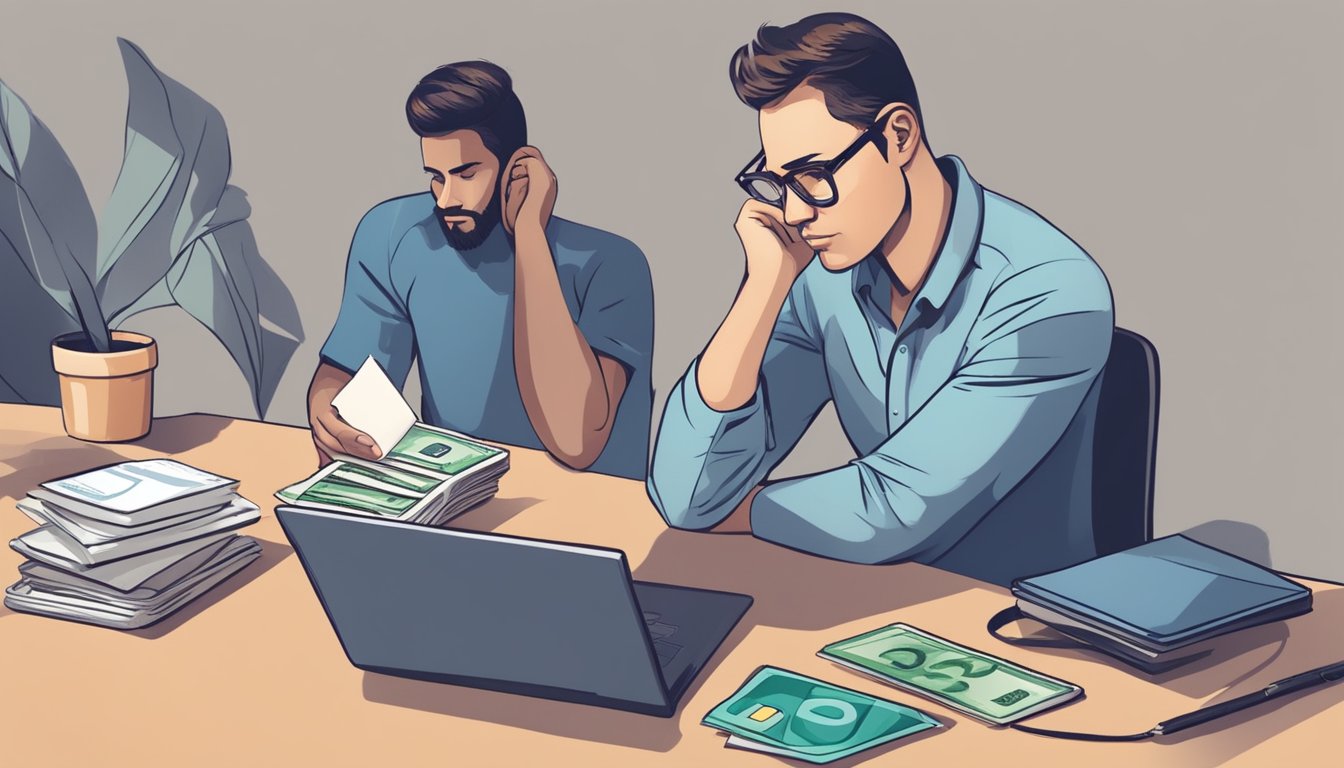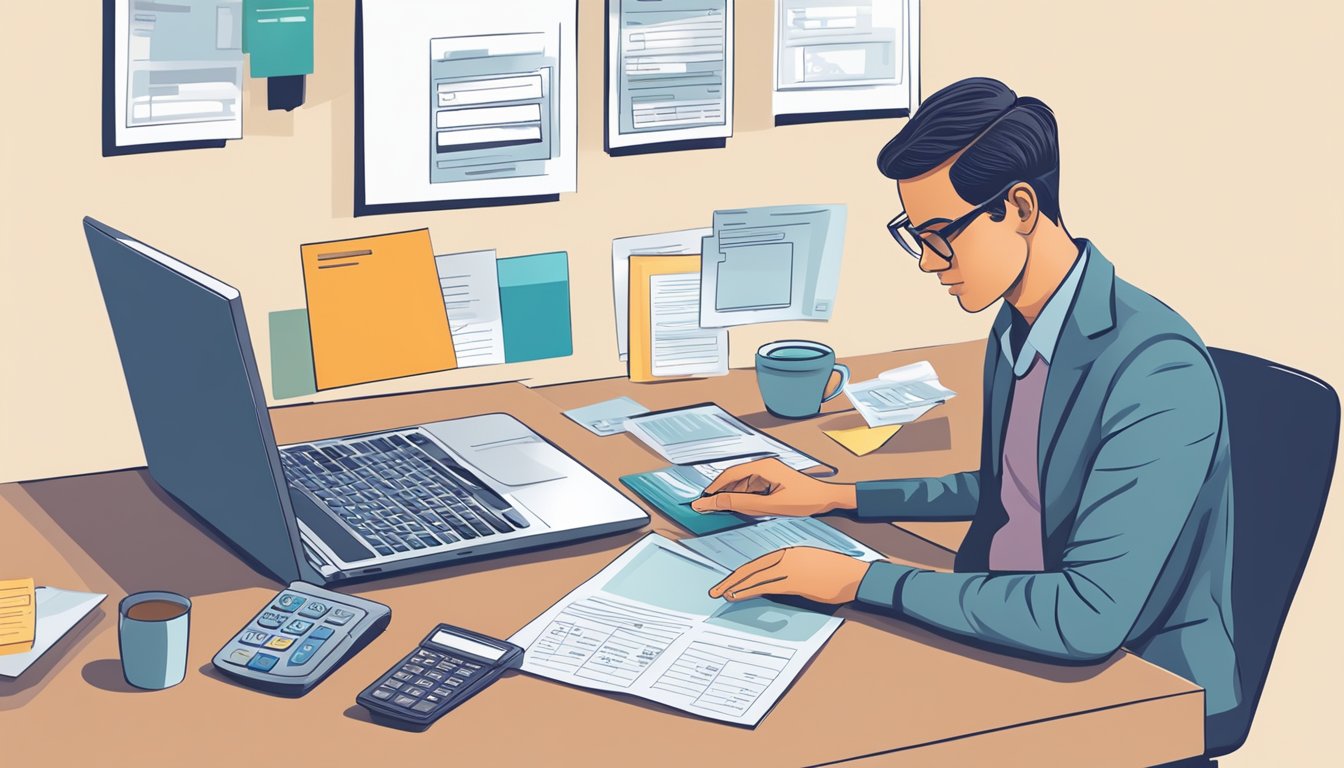Are you struggling with credit card debt and looking for a way to pay it off? One option to consider is a personal loan. A personal loan can help you consolidate your credit card debt into one monthly payment with a potentially lower interest rate, making it easier to manage your debt and pay it off faster.

When you have multiple credit card balances with high-interest rates, it can be challenging to make progress in paying off your debt. However, by taking out a personal loan to pay off your credit card debt, you can simplify your payments and potentially save money on interest charges. With a personal loan, you’ll have a fixed repayment period, typically ranging from 12 to 84 months, which can help you stay on track with your debt repayment plan.
If you’re considering a personal loan to pay off your credit card debt, it’s essential to explore your debt consolidation options and strategies for repayment and financial health. By doing so, you can make an informed decision about the best course of action for your financial situation. Keep reading to learn more about personal loans to pay off credit cards and how they can help you achieve your debt repayment goals.
Key Takeaways
- A personal loan can help you consolidate your credit card debt into one monthly payment with a potentially lower interest rate.
- With a fixed repayment period, a personal loan can help you stay on track with your debt repayment plan.
- Exploring your debt consolidation options and strategies for repayment and financial health can help you make an informed decision about using a personal loan to pay off your credit card debt.
Exploring Debt Consolidation Options

If you’re struggling to manage multiple credit card payments, consolidating your credit card debt with a personal loan or balance transfer credit card can be a smart move. Here are some debt consolidation options that you can explore:
Understanding Personal Loans for Credit Card Debt
A personal loan is an unsecured loan that you can use to consolidate your credit card debt. Unlike a balance transfer credit card, a personal loan gives you a fixed amount of money that you can use to pay off your credit card debt. You then make fixed monthly payments to repay the loan over a set period of time. Personal loans typically have lower interest rates than credit cards, which can save you money in the long run.
When considering a personal loan, it’s important to shop around for the best interest rates and terms. You’ll want to look for a loan with a low interest rate, no or low fees, and a repayment period that works for your budget. Some lenders may require a good credit score to qualify for a personal loan, so make sure to check your credit score before applying.
Advantages of Balance Transfer Credit Cards
Another option for consolidating credit card debt is a balance transfer credit card. With a balance transfer credit card, you can transfer your high-interest credit card debt to a new card with a 0% introductory APR. This can give you a break from paying interest for a set period of time, typically 12 to 21 months. During this time, you can focus on paying down your debt without accruing additional interest charges.
However, it’s important to note that balance transfer credit cards may come with fees, such as a balance transfer fee or an annual fee. Additionally, once the introductory period ends, the interest rate will increase, so it’s important to have a plan to pay off your debt before the interest rate goes up.
Overall, consolidating your credit card debt with a personal loan or balance transfer credit card can be a great way to simplify your finances and save money on interest charges. Just make sure to weigh the pros and cons of each option and choose the one that works best for your financial situation.
Strategies for Repayment and Financial Health

Effective Budgeting Techniques
When you’re trying to pay off credit card debt with a personal loan, it’s important to have a solid budget in place. This will help you manage your finances effectively and ensure that you’re able to make your loan payments on time.
One effective budgeting technique is the 50/30/20 rule. This involves allocating 50% of your income to essential expenses like rent, utilities, and groceries, 30% to discretionary spending like entertainment and dining out, and 20% to savings and debt repayment.
Another useful technique is to track your spending and identify areas where you can cut back. This might involve cancelling subscriptions or memberships that you’re not using, or finding ways to reduce your utility bills.
Choosing the Right Repayment Plan
When you take out a personal loan to pay off credit card debt, you’ll need to choose the right repayment plan to suit your needs. This will depend on factors like your income, your budget, and the amount of debt you have.
One option is to opt for a shorter repayment term, which will allow you to pay off your loan faster and save money on interest. However, this will also mean that your monthly payments will be higher.
Another option is to choose a longer repayment term, which will result in lower monthly payments but higher overall interest charges. This can be a good choice if you’re struggling to make ends meet or have other financial obligations to consider.
Improving Credit Score Through Consolidation
Consolidating your credit card debt with a personal loan can also help to improve your credit score. This is because it will reduce your credit utilization ratio, which is a key factor in determining your credit score.
To make the most of this benefit, it’s important to make your loan payments on time and in full. This will demonstrate to lenders that you’re a responsible borrower and can help to improve your creditworthiness over time.
Overall, taking out a personal loan to pay off credit card debt can be an effective way to manage your finances and achieve your financial goals. With the right budgeting techniques, repayment plan, and credit management strategies, you can take control of your debt and build a brighter financial future.
Frequently Asked Questions

What are the advantages of using a personal loan to clear credit card debt?
Using a personal loan to pay off your credit card debt can be advantageous for several reasons. Firstly, personal loans usually have lower interest rates compared to credit cards, which means you can save money on interest charges. Secondly, personal loans have fixed repayment terms, so you can budget and plan your repayments better. Lastly, consolidating your credit card debt into a personal loan can simplify your finances by having just one monthly payment to make.
How does consolidating credit card debt with a personal loan affect my credit score?
Consolidating your credit card debt with a personal loan can have both positive and negative effects on your credit score. On the positive side, paying off your credit card balances with a personal loan can lower your credit utilization rate, which is a factor that affects your credit score. On the negative side, taking out a personal loan can result in a hard credit inquiry, which can temporarily lower your credit score. However, if you make timely payments on your personal loan, your credit score can improve over time.
What should I consider before taking out a personal loan to settle credit card balances?
Before taking out a personal loan to settle your credit card balances, you should consider several factors. Firstly, make sure that the interest rate on the personal loan is lower than the interest rate on your credit cards. Secondly, consider the fees and charges associated with the personal loan, such as origination fees, prepayment penalties, and late fees. Lastly, make sure that you can afford the monthly payments on the personal loan, as defaulting on the loan can have negative consequences for your credit score.
Are there any downsides to paying off credit card dues with a personal loan?
Yes, there are some downsides to paying off credit card dues with a personal loan. Firstly, taking out a personal loan to pay off your credit card debt does not address the root cause of the problem, which is overspending. Secondly, if you do not make timely payments on your personal loan, you can end up with even more debt due to late fees and penalties. Lastly, taking out a personal loan can be risky if you do not have a stable source of income to make the monthly payments.
How do I find the best personal loan for the purpose of paying off my credit cards?
To find the best personal loan for the purpose of paying off your credit cards, you should compare the interest rates, fees, and repayment terms of different lenders. You can use online comparison tools or consult with a financial advisor to find the best option for your needs. Additionally, make sure to check your credit score before applying for a personal loan, as having a good credit score can increase your chances of getting approved for a loan with favourable terms.
What’s the process for using a personal loan to cover my credit card bills?
The process for using a personal loan to cover your credit card bills is relatively simple. Firstly, you should research and compare different lenders to find the best option for your needs. Then, you can apply for a personal loan by filling out an application form and providing the necessary documentation, such as proof of income and identity. If you are approved for the loan, the funds will be disbursed to your bank account, which you can use to pay off your credit card balances. Lastly, you will need to make timely payments on the personal loan according to the repayment terms.




